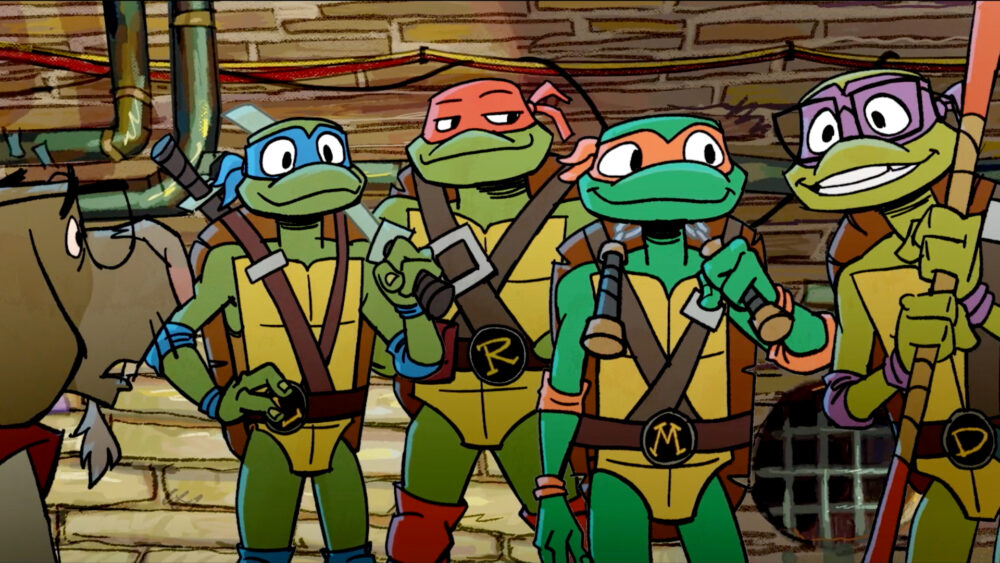In anticipation of Valerian and The City of a Thousand Planets, the new sci-fi adventure film from French film auteur, Luc Besson, I have cooked up a think piece about the sequel that never was and according to Besson himself last week at the screening of Leon: The Professional at the Egyptian Theatre in Hollywood, never could be.
“Why didn’t you ever make a sequel about what happens to Mathilda?” an earnest fan dressed as the lanky hitman, Leon, addressed the soft spoken french director during the Q & A following the crowd pleasing theatrical cut of Leon: The Professional. Besson thought for a moment then, answered in his typical broken english, “That time has passed.” He continued, “Finally, I had the perfect idea for a film with Mathilda aged 19, but, Natalie isn’t 19 anymore. The time has passed.”
Suddenly, I wasn’t listening anymore. The question opened up an entire world of possibility for me. How many times have I day-dreamed about whatever happened to Mathilda? More than I can count. This wasn’t a new imagination realm. I had often thought about the older, wiser Mathilda since I first watched Leon: The Professional on home video back in the 90’s. I wasn’t much older than Mathilda was then. She was 12 and I was 14. Honestly, I wasn’t supposed to be watching my father’s action films but how could I not?
Here’s the setup: Every Sunday night, the stack of VHS tapes ready to be returned to Blockbuster Video sat on the coffee table until Monday morning when my mother would take them to the Blockbuster dropbox after she drove both me and my brother to school. So, what happened between Sunday night and Monday morning? You guessed it. Little Julianna would creep downstairs and cram every R-rated film into her brain until sunrise. I would leave for school exhausted, but man, it was worth it!
For those of you who don’t know anything about Leon: The Professional, go watch it now.
For the rest, here’s a recap: It’s a story that takes place in NYC’s Little Italy about a 12 year old girl, Mathilda, that returns home from the grocery store after her parents have been brutally slain by rogue DEA agents. The agents sought vengeance specifically toward her father, who had been cutting the cocaine he was stashing for them. In the same apartment building, down the hallway, lives an awkward hitman, Leon, with a prowess for killing unlike anything seen in cinema before. He seems inhuman in strength and as intuitive as a cat. His gift for operating semi-automatic weaponry and sniper rifles make the gangster films of the 80s pale in comparison. When Leon takes the orphaned Mathilda into his home, his life changes forever.
With everyone in her family dead, including her only source of comfort in the world, her little brother, Mathilda decides to ask Leon to teach her to hunt and kill with ease the way he does. In hopes of executing her brother’s killer, she begins a rigorous training program with Leon at the helm. Later, with the help of Leon, Mathilda is able to track down the corrupt DEA agents, thwart their evil plans and destroy them. In the end, Mathilda loses her newfound friend, Leon, in an explosion that kills the main bad dude too, however, she gains insight on true friendship and an expertise on “cleaning” most people never receive. Before the credits roll, she is forced to enroll back into to the prestigious boarding school that threatened to expel her before her family died. The end.
Only Luc Besson could make something sounding this ridiculous on paper, seem exciting, fresh and most importantly, plausible. It really has a charming, gangster fairy tale vibe to it. Moreover, it made an 11 year old Natalie Portman, in the role of Mathilda, an overnight star.
Growing up in the 90s, woman started to be represented in new ways. Female badasses began cropping up on the silver screen and TV. Not a ton, mind you, but enough for me to gather some anti-heroic role models. Luc Besson excelled at writing female characters of complexity, importance and strength. We need not look further then La Femme Nikita or The Fifth Element for great examples of female heroines. Leon: The Professional was no exception.
Strangely enough, the first time I saw Leon: The Professional, I understood a new part of myself. I couldn’t shake Mathilda. I thought about her and her fate long after middle school math class. I thought about her during high school, college, and later, in film classes. What was she up to? I knew she couldn’t have stayed at that boring boarding school for long and if she did, it was only a matter of time before she broke out and slipped into the NYC night with her head full of Leon’s teachings to exact her satisfying retribution toward a corrupt and unjust world.
Mathilda had no real home, no mundane future ahead and no strings attached. She could be anyone, and yet, no one at the same time; a perfect woman to admire. Mathilda: A blank canvas to gaze upon while living out different parts of my own life; the troubling phases and the pesky growing pains. Did she become the kind of woman that we all wanted to be? Yes, because she didn’t have to be anything for certain. She could walk between the raindrops like Leon did. She could live in hiding as a vigilante or go through school and receive top honors.
It’s true. Mathilda is a Rorschach for my own life; a gauge for how I am living and how I am feeling. If Mathilda is killing some greedy politicians or drowning a nasty child killer in a puddle of his own blood then, clearly, I’m a little world weary. Is she teaching neurophysics at NYU while designing the ultimate neurological weapon on the side? Conversely, is she a mother that protects her own children from the violent childhood that she experienced? Maybe. It all truly depends on where my head is at.
Regardless of who or what Mathilda is to you, Luc Besson created a great, multi-dimensional character. Natalie Portman brought her to life. In a world of disappointing one dimensional female characters, Mathilda makes the ultimate difference. For me, she has always been an exemplary representation of a dream you take home long after the movie ends.
Written by: Julianna Brudek

Events
Paramount+ Reveals Official Main Title Sequence for the Upcoming Series TALES OF THE TEENAGE MUTANT NINJA TURTLES

During the TALES OF THE TEENAGE MUTANT NINJA TURTLES panel earlier today at San Diego Comic Con, Paramount+ revealed the official main title sequence for the series. The sequence is composed by EMMY® nominee, Matt Mahaffey, known for his work on Sanjay and Craig, Rise of the Teenage Mutant Ninja Turtles, and Rise of the Teenage Mutant Ninja Turtles: The Movie and much more.
From the studios of the Mutant Mayhem film, the all-new Paramount+ original series TALES OF THE TEENAGE MUTANT NINJA TURTLES explores the adventures of everyone’s favorite pizza-loving heroes as they emerge from the sewers onto the streets of NYC. Leo, Raph, Donnie and Mikey are faced with new threats and team up with old allies to survive both teenage life and villains lurking in the shadows of the Big Apple. The series is produced by Nickelodeon Animation and Point Grey Pictures.
TALES OF THE TEENAGE MUTANT NINJA TURTLES is executive produced by Chris Yost (The Mandalorian, Thor: Ragnarok) and Alan Wan (Blue Eye Samurai, Rise of the Teenage Mutant Ninja Turtles, Teenage Mutant Ninja Turtles [2012 Series]). Production is overseen for Nickelodeon by Claudia Spinelli, Senior Vice President, TV Series Animation, Nickelodeon, and Nikki Price, Director of Development and Executive in Charge of Production.
In addition to the upcoming new series, stream all things Turtles on Paramount+.
Events
Comic-Con 2024: Those About to Die Activation
Events
DISNEY+ CASTS DANIEL DIEMER AS FAN-FAVORITE ‘TYSON’IN SEASON TWO OF “PERCY JACKSON AND THE OLYMPIANS”

in Hall H at San Diego Comic-Con, Rick Riordan and Disney+ revealed that Daniel Diemer (“Under the Bridge”) will star as fan-favorite cyclops “Tyson” in the epic adventure series “Percy Jackson and the Olympians.” Diemer joins Walker Scobell (Percy Jackson), Leah Sava Jeffries (Annabeth Chase) and Aryan Simhadri (Grover Underwood) as a series regular. The Disney+ Original series from Disney Branded Television and 20th Television will start filming its second season next week in Vancouver.
Season two of “Percy Jackson and the Olympians” is based on the second installment of Disney Hyperion’s best-selling book series titled “The Sea of Monsters” by award-winning author Rick Riordan. In the new season, Percy Jackson returns to Camp Half-Blood one year later to find his world turned upside down. His friendship with Annabeth is changing, he learns he has a cyclops for a brother, Grover has gone missing, and camp is under siege from the forces of Kronos. Percy’s journey to set things right will take him off the map and into the deadly Sea of Monsters, where a secret fate awaits the son of Poseidon.
Diemer stars as Tyson – a young Cyclops who grew up all alone on the streets, and finds it difficult to survive in the human world. Shy and awkward, with a heart almost as big as he is, Tyson soon discovers that Poseidon is his father, which means Percy Jackson is his half-brother… and that Tyson may have finally found a home.
Diemer recently starred in the Hulu limited series “Under the Bridge” based off the critically acclaimed book of the same name and a tragic true story of a missing teen girl in Vancouver in 1997. He will next star in the indie “Thug” opposite Liam Neeson and Ron Perlman for director Hans Petter Moland. Daniel was recently seen as the lead in the indie “Supercell” opposite Alec Baldwin and Skeet Ulrich and the lead in the film “Little Brother” opposite Phil Ettinger and JK Simmons. Daniel can also be seen in the Netflix series “The Midnight Club” and recently starred as the male lead in the breakout hit Netflix feature “The Half Of It” from producer Anthony Bregman and director Alice Wu. He is a graduate of Victoria Academy of Dramatic Arts in Vancouver.
Created by Rick Riordan and Jonathan E. Steinberg, season two of “Percy Jackson and the Olympians” is executive produced by Steinberg and Dan Shotz alongside Rick Riordan, Rebecca Riordan, Craig Silverstein, The Gotham Group’s Ellen Goldsmith-Vein, Bert Salke, The Gotham Group’s Jeremy Bell and D.J. Goldberg, James Bobin, Jim Rowe, Albert Kim, Jason Ensler and Sarah Watson.
The first season of “Percy Jackson and the Olympians” is available on Disney+
-

 Interviews1 day ago
Interviews1 day agoInterview With Heroes & Villains Creative Director Doug Johnson
-

 Streaming1 day ago
Streaming1 day agoApple TV+ announces season two for delightful kids and family series “Camp Snoopy
-

 Events1 day ago
Events1 day agoThat’s My E Coverage Of The Adult Swim’s Pirate Parrrty
-

 Events12 hours ago
Events12 hours agoParamount+ Reveals Official Main Title Sequence for the Upcoming Series TALES OF THE TEENAGE MUTANT NINJA TURTLES
-

 Events16 hours ago
Events16 hours agoDISNEY+ CASTS DANIEL DIEMER AS FAN-FAVORITE ‘TYSON’IN SEASON TWO OF “PERCY JACKSON AND THE OLYMPIANS”
-

 Interviews16 hours ago
Interviews16 hours agoComic-Con 2024: Will Wight’s Cradle
-

 Events15 hours ago
Events15 hours agoComic-Con 2024: Those About to Die Activation




